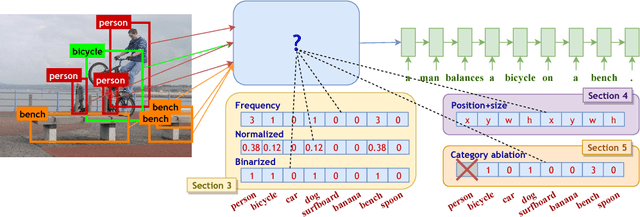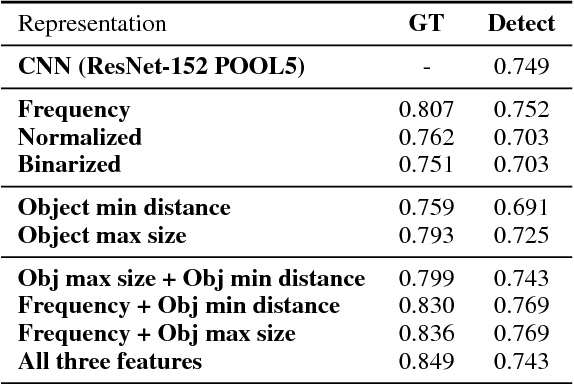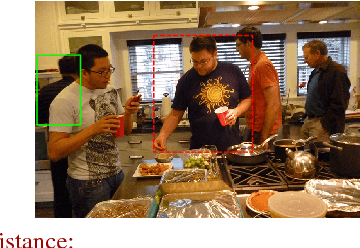Object Counts! Bringing Explicit Detections Back into Image Captioning
Paper and Code
Apr 23, 2018



The use of explicit object detectors as an intermediate step to image captioning - which used to constitute an essential stage in early work - is often bypassed in the currently dominant end-to-end approaches, where the language model is conditioned directly on a mid-level image embedding. We argue that explicit detections provide rich semantic information, and can thus be used as an interpretable representation to better understand why end-to-end image captioning systems work well. We provide an in-depth analysis of end-to-end image captioning by exploring a variety of cues that can be derived from such object detections. Our study reveals that end-to-end image captioning systems rely on matching image representations to generate captions, and that encoding the frequency, size and position of objects are complementary and all play a role in forming a good image representation. It also reveals that different object categories contribute in different ways towards image captioning.
 Add to Chrome
Add to Chrome Add to Firefox
Add to Firefox Add to Edge
Add to Edge